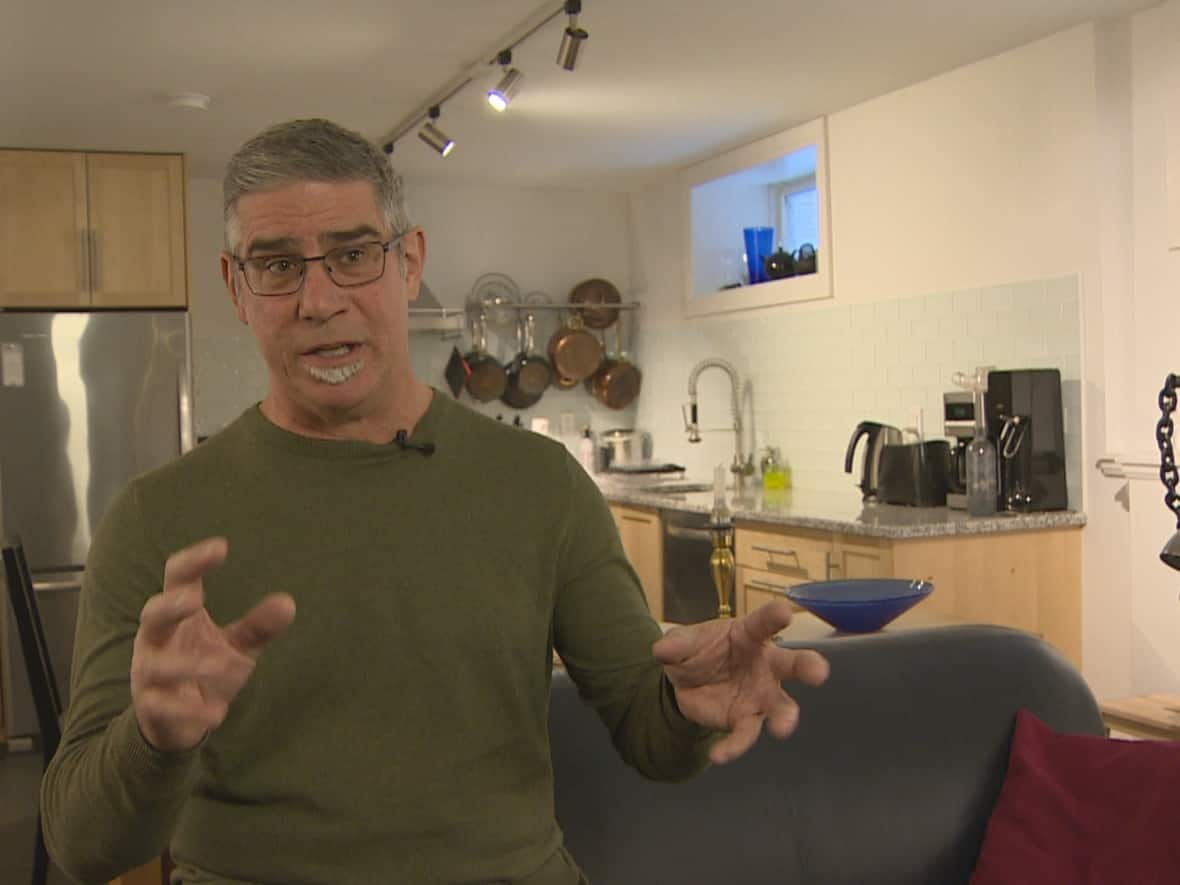Hundreds of hosts booted from Airbnb after Toronto city audit, some for minor clerical errors

Hundreds of people who rent rooms or homes on Airbnb in Toronto have been delisted from the platform after a city audit, with some saying they were booted because of minor clerical errors which have now cost them thousands of dollars in bookings.
The City of Toronto confirmed that a recent audit of its Airbnb registrations has resulted in approximately 300 people being delisted from the home-sharing website. In all, 700 listings in the city were cancelled, it said.
The city periodically reviews registrations to cut down on so-called "ghost hotels," which are illegal rentals that aren't owner-occupied, are often managed by a company and sometimes advertised under fake "host" profiles.
But the latest purge has left some legitimate Airbnb hosts like Jennifer Trant and Daniel Kaplan frustrated. Trant's Beaches apartment was delisted earlier this month and she said she was only able to get it back on the platform last week with the assistance of a city councillor.
"It's like no notice, no recourse, totally capricious, guilty until proven innocent," she said of the audit.
"And that's just wrong. This is not the way we should govern our city."
Trant is recently retired and spending months away from her Toronto home travelling. She has been a registered part of the city's Airbnb regulatory system for years and said a pair of small differences between her profile with the platform and the city's record of her registration resulted in her delisting and the cancellation of $11,000 worth of bookings.
The city said unless the information from Airbnb is an "exact match" with their information, it could result in a listing being "flagged and removed."
Information in wrong online fields led to delisting
After her apartment was removed, Trant was told by city staff that one piece of information in her registration was in the wrong online field. She was also told that instead of spelling out the full word "Avenue" in another field, she must use the abbreviation "Ave."
"I don't think anybody thinks through the real cost of this," she said.
"Because it's not just my time and their time. But the time that the city employees have spent with this, too, is just ridiculous. And it's completely disproportionate to the problem."
It's completely disproportionate to the problem. - Jennifer Trant, Airbnb host
Trant said the city didn't reach out to her to check in about the discrepancies, and instead delisted her home from the service, forcing Airbnb to cancel the reservations.
Daniel Kaplan, a friend of Trant's who helps her Airbnb guests when she's out of town, said the situation has been stressful. They've spoken with other Airbnb users in the city who have experienced the same thing, he said.
"Sometimes this is the difference between your unit being '2' as opposed to '02,'" he said. "Some of the very small, intricate differences can cause this audit to happen and it happens in a very clumsy way."
In December, the city warned Airbnb users that it would be auditing their registrations to ensure they matched the names and addresses exactly as provided by the home-sharing website. It said in a statement that its Airbnb audits are meant to help protect Toronto's rental stock.

"While these may be viewed as minor discrepancies by operators frustrated at being flagged by these compliance audits, missing/incomplete/inaccurate information prevents the city from verifying registration status and validating short-term rental activity in Toronto," the city said in a statement.
City says it warned of stricter enforcement
In previous rounds of compliance audits, listings with minor discrepancies were not removed and operators were informed of the problem, the city said.
"Listings of operators who were not compliant with the bylaw were removed in this round," it added.
Airbnb said it shares the frustration of its hosts and guests and is working to support those affected by the city audit.
"The City of Toronto is enforcing against legitimate, licensed hosts for issues like minor name and address discrepancies — forcing cancellations and unfairly penalizing responsible Airbnb hosts and their guests," Nathan Rotman, Airbnb's regional lead for the U.S. northeast and Canada, said in a statement.

Coun. Paula Fletcher (Ward 14, Toronto-Danforth) helped Trant get her listing restored on the platform and is critical of the approach to these audits. The city should be targeting people who avoid the registration system altogether, not Torontonians trying to play by the rules, she said.
"Before we had our system, there were 16,000 apartments [on Airbnb]," she said. "Now we're down to 4,000. So, 12,000 have shifted somewhere. My big concern is where are those? And how are they getting around the city's rules?"
City must work with hosts trying to follow rules, advocate says
Thorben Wieditz, of the advocacy group Fairbnb, said the city's work to regulate short-term rentals is crucial to prevent people from cheating the system.
But the city needs to work with hosts who are trying to follow the legal framework, not alienate them by penalizing them for clerical errors, he said.
"We've seen duplicate permit numbers pop up, people have put in arbitrary numbers," he said. "And people have tried to circumvent the city's regulations."
Wieditz said while the regulation process is bound to have hiccups, he cautions people about watering down the regulatory regime. It ensures that rental units that are desperately needed to help address Toronto's affordable housing crisis are on the market, he said.
"Everyone knows it's extremely difficult to find available and affordable housing units in the city," he said. "And the city's … short-term rental regulations are set up to ensure that we make any housing units available that possibly can be available to tenants and renters and homeowners in the City of Toronto."


